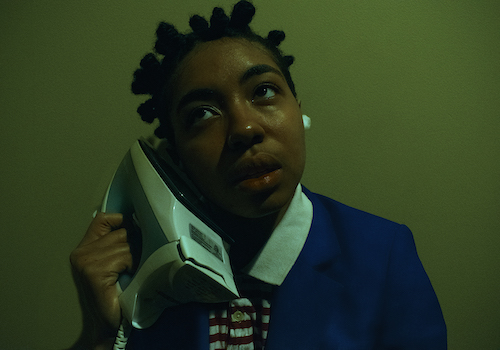Rotting Flowers
by nwaobiala
Edited by Dominik Parisien
Copyedited by Chelle Parker | Selected by Julia Rios
March 2020
Content Note:
This poem depicts physical assault and sexual violence against women.
I’m going to tell you a story, a true story. A black man with a black wife and a black son calls himself pro-black…. Then, twists his mouth to set my womanhood on fire, says he does not want a daughter, bathes in my ashes. The black man’s unborn daughter screams at his cruelty but he drowns her too.
Let’s play a game:
If a Nigerian woman has five children 1and none of them are boys, is she…
a) useless
b) barren
c) empty
d) a rotting flower
Another Story:
My sister says, “I miss you,” but she says it like, “It’s hard being the only girl in the house.” She tells me a boy at school tried to steal her body from her. The boy asked if they are still friends…. It starts young. Boys steal from girls then ask for love as forgiveness.
Here is the next question:
If a Nigerian woman has five children and all of them are daughters, are the daughters…
a) flowers nobody ever wanted
b) bound to be hurt by men
c) their father’s property until it’s time to inherit
d) somebody’s housewife
My favorite story:
When me and my sister fight, my mom says, “I never had a sister. I always wanted two girls and god, this great god, blessed me with two beautiful daughters, so please… don’t fight.” My mother taught me I am wanted before men could open their mouths.
The final question:
A Nigerian woman pulls her five daughters close to her chest, her heart beating. The five daughters look up at their father and ask, “Will you…
a) look for another wife
b) despise her
c) despise her
d) dispose of her
I’m going to tell you a story, a true story about flowers that turn to ashes when men deem them unworthy: School girls in Nigeria go missing and only mothers cry. The men know their sons are safe and their last names will live on. One girl returned from death with a baby from the afterlife. The girl’s father and brothers will not look at her. Another woman decides to remove her own tongue, tries to forget her memories, and cries only at night for fear that her husband will know she is tainted.
At my school, a black man leans back in his chair, casts my womanhood into the grave he dug for me, says he does not want a daughter, and still calls himself a revolution as he tramples over my dead body into battle…. And I want to cry but I don’t. Instead I tell a story, a never-ending story about a massacre of flowers, a slow genocide of the most beautiful beings this world refuses to love.
